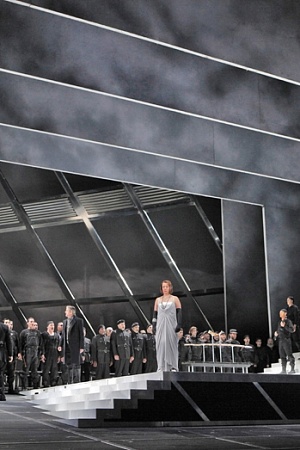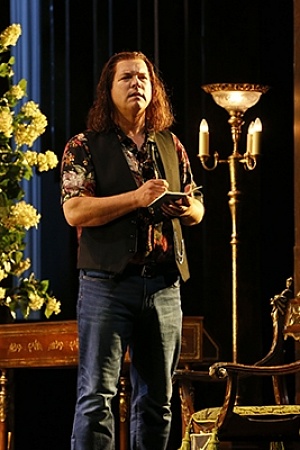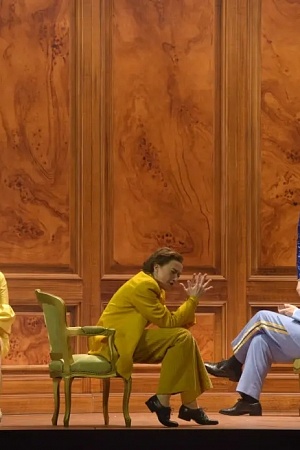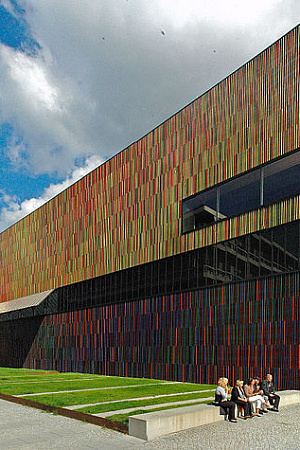La Bohème ★★★1/2 and Don Giovanni ★★★★ (Metropolitan Opera)
Franco Zeffirelli’s production of Puccini’s La Bohème (★★★1/2) has been delighting audiences (and enriching the company) since its première in 1981. Many of the world’s greatest singers have appeared in it:- since the first cast, which included Teresa Stratas, José Carreras, Renata Scotto, and James Morris (still with the company today). Even now, Met audiences applaud when the curtain rises in Act Two revealing the Café Momus and the Latin Quarter of Paris, with almost 250 choristers and extras.
Arts Update was keen to hear the young Ukrainian tenor Dmytro Popov. Zeffirelli does lyric tenors few favours by setting Rodolfo and Marcello’s garret high and towards the back of the stage, but the shell-like garret enabled Popov to project his handsome voice with considerable focus and power, and the Met – unlike so many modern theatres of this amplitude – famously supports and enhances good voices, rather than muffling them. Popov sang even more beautifully as the night went on: an auspicious début with the company, one that was broadcast across America too – surely the first of many appearances at the Met.
Continue reading for only $10 per month. Subscribe and gain full access to Australian Book Review. Already a subscriber? Sign in. If you need assistance, feel free to contact us.











Leave a comment
If you are an ABR subscriber, you will need to sign in to post a comment.
If you have forgotten your sign in details, or if you receive an error message when trying to submit your comment, please email your comment (and the name of the article to which it relates) to ABR Comments. We will review your comment and, subject to approval, we will post it under your name.
Please note that all comments must be approved by ABR and comply with our Terms & Conditions.